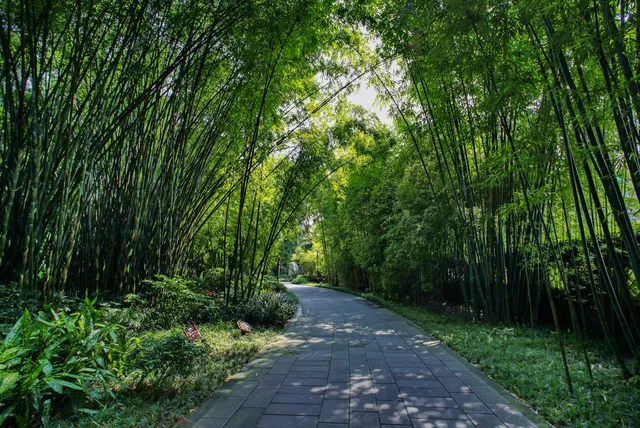Beijing, the capital of China, is a city that blends ancient history with modern development. With a population of over 21 million people, it is not only one of the largest cities in the country but also the political, cultural, and educational heart of China. As a city that dates back more than 3,000 years, Beijing has a rich historical legacy, serving as the capital of several dynasties, including the Yuan, Ming, and Qing. This deep history is reflected in its many landmarks, such as the Forbidden City, the Temple of Heaven, and the iconic Great Wall of China, which attract millions of tourists from all over the world each year.
Over the last few decades, Beijing has transformed into a modern metropolis, with rapid economic growth and technological advancement. It is a major hub for finance, international trade, and innovation, hosting numerous global corporations and a thriving startup scene. The city’s economy is one of the strongest in China, and its infrastructure, including the Beijing Capital International Airport and extensive subway network, is world-class.
Beijing is also famous for its distinctive cultural identity, showcased through its art, cuisine, and traditions. The city’s traditional Peking duck, vibrant hutongs (narrow alleyways), and the famous Peking Opera are just a few of the elements that define its cultural life. As the political capital, Beijing plays a central role in shaping national policy and international diplomacy.
As a global city, Beijing holds immense significance not just in China, but internationally. Its influence in politics, culture, and economics makes it a key player on the world stage. Whether exploring its ancient sites or experiencing its dynamic urban life, Beijing offers a unique blend of old and new that captivates both visitors and locals alike.
scenic spot
Top Local Experiences in Beijing
Cycling on Chang’an Avenue
Chang’an Avenue is lined with historical landmarks, and cycling is a great way to leisurely explore the city, experiencing Beijing’s rich history and vibrant urban life at a comfortable pace.
Watching a Peking Opera Performance
Peking Opera is one of China’s traditional art forms. Watching a live performance offers a chance to experience Chinese opera’s music, dance, and elaborate costumes, providing deep insight into Chinese cultural heritage.
Strolling through Beijing’s Hutongs
The traditional hutongs (alleys) are a hallmark of Beijing’s culture. Walking through these alleys allows visitors to experience the old Beijing lifestyle, and riding a rickshaw can make the experience even more fun and unique.
Attending a Tea Ceremony
Chinese tea culture is profound, and participating in a tea ceremony in one of Beijing’s tea houses allows visitors to learn about different types of tea, the art of tea-making, and the philosophy behind tea culture.
Exploring Beijing’s Traditional Markets
Beijing is home to many traditional markets, such as the Liulichang Cultural Street. Here, visitors can buy Chinese handicrafts and enjoy local street food, experiencing authentic local life.
Taking a Boat Tour at the Summer Palace
Taking a boat ride on Kunming Lake at the Summer Palace is one of the best ways to experience this royal garden. The lake reflects the surrounding buildings and trees, offering a tranquil and picturesque atmosphere.
Dining in a Traditional Siheyuan
Many traditional Beijing siheyuans (courtyard houses) have been converted into restaurants or bars. Dining here allows visitors to experience the historical ambiance of old Beijing, along with modern amenities.
Relish Culture And Life
Cycling on Chang’an Avenue
Chang’an Avenue is lined with historical landmarks, and cycling is a great way to leisurely explore the city, experiencing Beijing’s rich history and vibrant urban life at a comfortable pace.
Watching a Peking Opera Performance
Peking Opera is one of China’s traditional art forms. Watching a live performance offers a chance to experience Chinese opera’s music, dance, and elaborate costumes, providing deep insight into Chinese cultural heritage.
Strolling through Beijing’s Hutongs
The traditional hutongs (alleys) are a hallmark of Beijing’s culture. Walking through these alleys allows visitors to experience the old Beijing lifestyle, and riding a rickshaw can make the experience even more fun and unique.
Attending a Tea Ceremony
Chinese tea culture is profound, and participating in a tea ceremony in one of Beijing’s tea houses allows visitors to learn about different types of tea, the art of tea-making, and the philosophy behind tea culture.
Exploring Beijing’s Traditional Markets
Beijing is home to many traditional markets, such as the Liulichang Cultural Street. Here, visitors can buy Chinese handicrafts and enjoy local street food, experiencing authentic local life.
Taking a Boat Tour at the Summer Palace
Taking a boat ride on Kunming Lake at the Summer Palace is one of the best ways to experience this royal garden. The lake reflects the surrounding buildings and trees, offering a tranquil and picturesque atmosphere.
Dining in a Traditional Siheyuan
Many traditional Beijing siheyuans (courtyard houses) have been converted into restaurants or bars. Dining here allows visitors to experience the historical ambiance of old Beijing, along with modern amenities.
brilliant cuisine
Peking Duck
As Beijing’s most iconic dish, Peking Duck is known for its crispy skin and tender meat. It is traditionally served with thin pancakes, sliced spring onions, and sweet bean paste. One bite, and you’ll be hooked by its rich flavors.
Zhajiangmian (Fried Sauce Noodles)
A traditional Beijing noodle dish, Zhajiangmian features noodles topped with a savory fried sauce made of ground pork and fermented soybean paste. It’s a simple yet flavorful dish that represents local comfort food.
Luzhu Huoshao
This traditional Beijing snack consists of stewed meat and fire-baked bread. The rich, savory flavor makes it a popular dish, especially for those looking to experience Beijing’s hearty and robust street food.
Douzhi (Mung Bean Milk)
Douzhi is a traditional Beijing drink made from fermented mung beans, offering a slightly sour taste. Though it may seem unusual to some, it’s an essential part of Beijing’s local food culture and an interesting experience for adventurous eaters.
Hot Pot (Shuan Yangrou)
Peking Hot Pot, especially the mutton hot pot, features fresh lamb slices and vegetables, which are quickly cooked in boiling broth. It is typically served with sesame paste, soy sauce, and garlic, creating a rich and flavorful dining experience.
Fried Sweet Rice Cake
Fried Sweet Rice Cake, or “Zha Gao,” is a traditional Beijing dessert made from sticky rice and red bean paste, deep-fried to a golden, crispy exterior. It’s a sweet, comforting treat commonly found at local street food stalls.
Jiaozi (Dumplings)
Though Jiaozi is more commonly associated with northern China, Beijing offers its own unique version. Filled with various fillings like minced pork, cabbage, or beef, they are often served steamed or boiled and dipped in a savory soy sauce.





